- Home
- Parnell Hall
06-Juror Page 6
06-Juror Read online
Page 6
“If for any unforeseen reason you are going to be late—and this should not happen—you will call me and you will tell me, so I can make arrangements to have you brought in. And do not call me at five minutes of ten and say, “Oh, I’m going to be late.” At ten o’clock we will have the judge and the lawyers and the witnesses waiting on you. If you are going to be late, you call me well in advance and you have a damn good reason why you are going to be late, or you will be in serious trouble. Is that clear?”
No one said a word.
“Fine. Take down this number.”
He repeated the number twice and we all dutifully copied it down. He then repeated it again to make sure we’d gotten it right.
“All right,” he said. “While you are in this room you are in my charge. You will not leave this room unless I leave with you. You will not poke your head out into the hall. If you want something and I’m not here, you will simply wait until I am here.
“And there is no reason why you have to go out.” He pointed to a door behind me in the back wall. “That is a bathroom. If you want coffee or rolls or whatever, that is fine. But bring them with you. Once you are here, you may not go out again to get them.
“If you need to make phone calls, make them before you get here, and after you are dismissed. There is no phone in the room, and you may not go out to use a phone. There are no exceptions. Plan your life accordingly. Is that clear?”
He glared at us. No one said a word.
“Good,” Ralph said. “In case you missed it the first time around, your job now is to stay here. You are not to leave this room for any reason. When the judge is ready for you, I will come and get you.”
With that he turned on his heel and stalked out, slamming the door behind him.
9.
LEAVING ME ALONE with my fellow jurors. It was the first time I’d got a good look at them. Up till that point I’d been too overawed by Ralph. Now I looked around the table at the people I’d been dorked into spending some time with.
Mrs. Abernathy and I were just the alternates, the new kids on the block. The other six were the regulars, the first team, the old hands at the game. The minute the door was closed they all looked at each other with expressions that commented on Ralph’s exit, such as smiling, shaking heads, rolling eyes to the ceiling, giggling and laughing outright. Apparently Ralph was already a known quantity and an object of derision.
After that they all introduced themselves to Mrs. Abernathy and me, which in my case was less than helpful. I’m poor at names, and have trouble remembering even one person I’m introduced to. Throw six at me and I’m lost. I needed to sort the people out first before any of the names began to stick.
Going around the table clockwise, the first person on my left was an older man in a sweater and tweed jacket, which seemed a bit excessive for the warm weather and gave me the impression the man was either a college professor or wanted to look like one.
Next to him was a young Hispanic woman with hoop earrings. She had a pleasant enough plumpish face, with perhaps a bit too much makeup.
Next to her was a woman I’d have voted hands down the juror I’d most like to be stranded on a desert island with. She was about thirty, with long, curly blonde hair framing an attractive, girlish face. She was wearing a blue sleeveless pullover and, in my humble sexist opinion, was not wearing a bra. Under different circumstances it might have been pleasant to be part of a group she was in.
The chair at the end of the table opposite me was vacant. Around the corner from that, sitting directly opposite the blonde was a young man who looked like a college student. If so, he was a cocky, jock type, and I wondered if he was sitting opposite Blondie on purpose, if by the end of the trial perhaps they’d become an item.
Next to him sat Mrs. Abernathy. Next to her was the vacant chair I’d passed up. Next to that was a sharp-looking woman in a business suit. She had short hair and a rather severe look, the type of woman I wouldn’t want to argue with. The type of woman who’d make me feel like she was the grownup, and I was a little boy. It was a shock to realize she must be younger than I was.
Next to her was a young black man who might have been quite handsome, but who had elected to give himself one of those haircuts that for some reason had become popular among blacks, with the hair shaved off around the head and sculpted into a tall cylinder on top. It might have been the height of fashion, but, unfortunately, in his case it made his head look like the eraser on a pencil.
After the introductions which whizzed by me to no avail, Eraserhead spoke first. He looked at me and grinned. “So you’re the one, right? You’re the private detective?”
“Yeah. That’s right.”
“Yeah, that’s what Chuckles said.”
“Chuckles?”
The business woman jerked her thumb at the door and smiled, which made her look much less severe. “Yeah. Ralphie. We call him Chuckles.”
“Not to his face,” the professor put in, and everyone laughed.
Eraserhead explained, “Chuckles told us to stand by after lunch because we might be getting a jury. But he said they might not, ’cause they probably wouldn’t take the detective.”
I sighed. “Oh.”
The Hispanic woman with the hoop earrings said, “You’re really a detective?” Her face was lit up like a Christmas tree and she was smiling a mouthful of white teeth. “I never met a detective before.”
“Down girl,” College Boy said. The new College Boy, not the one who ran the turkey raffles. It was an attempt at humor that didn’t go over, leaving him looking miffed and young.
Hoop Earrings took no notice. “You shoot people?” she said.
“That’s just on television.”
“But you’re really a detective?” Business Woman said.
I don’t know why people find that so hard to believe. I mean, all right, I don’t look like a private detective, but then who does? I guess in the normal course of their lives, most people never see one outside of TV.
“So what do you do?” Eraserhead said. “Stake out places and follow people?”
“Nothing that glamorous,” I said, and went on to explain how my business was largely personal injury work and consisted of nothing more exciting than photographing cracks in the sidewalk. Even so, I was clearly the shining star on that jury, which I might have found gratifying if I’d been in a better mood.
Which I wasn’t. The worst had happened, and as far as I was concerned, things couldn’t have looked blacker. Not only had I been put on a jury, but here I was locked in a room with no telephone, so I couldn’t call the office. Worse than that, I couldn’t even check my beeper. There was a bathroom, but it was right by the head of the table, and when College Boy went in to use it we could hear him piss. My beeper would fill the room like a police siren. Unless I wanted to take seven strangers in on my guilty secret, which I sure as hell didn’t, I was out of luck. So I just had to sit there chatting amiably with a group of people who were annoyingly glad to have me.
All except Blondie, who seemed preoccupied with her crotch. I must say that fascinated me. I mean, here was a group of people, all joking and talking animatedly, and here was the most attractive person in the room oblivious to it all, staring down at her crotch.
It was very distracting. I found my eyes kept coming back to her like a moth to a flame. And every time, there she was, head down. Occasionally she’d raise her head, but not to look at anyone. Instead she’d stare blankly over the head of College Boy at some spot on the wall midway between the floor and the ceiling. When she did this, I noticed her lips moving slightly. After a moment she’d look at her crotch again.
I was intrigued enough by this phenomenon to be considering whether I should get up, wander over there and look at her crotch too, when she sighed, raised her hands from under the table, and the mystery was solved.
She was holding a book. She’d been reading it in her lap.
I recognized the book at once. It was a paperback,
thinner than a pocketbook, but slightly wider, with a plain, dull paper cover rather than a colorful glossy one. I knew what it was from my days back in summer stock. I couldn’t tell what play it was, but it was either a Samuel French or Dramatists Play Service script.
Which explained her strange behavior. Blondie was an actress and she was memorizing her lines.
I resented that too. I guess I was just in a particularly foul mood. But in New York City, where there are thousands of actresses, it would have been much more interesting to meet a beautiful woman who just happened to be fascinated with her crotch.
We sat there for what seemed like hours. There was no clock in the room and I didn’t have a watch. During that time, Blondie kept reading, and the others kept talking. After they’d exhausted the subject of my detective work, they moved on to the case and how dull it sounded, which did not cheer me. Business Woman referred to Pendergas as Pretty Boy, which appeared to have been accepted as his nickname. That seemed inadequate to me. I wasn’t about to argue, but I knew I’d always think of him as the Silver Fox.
They referred to the other lawyers as Peter, Paul and Mary. I guess that wasn’t such a clever observation on my part. I guess it was totally obvious. To my amusement, when I asked, no one was sure which was Peter and which was Paul.
Finally the door opened and Ralph came in.
“All right, jurors, let’s go. Court’s waiting.”
It was remarkable. I don’t know how he did it, but somehow Ralph managed to give the impression that we’d all been slacking off and holding everyone up.
“Let’s go, let’s go,” he said. “Line up in reverse order.”
“Reverse order?” I blurted.
“Yes, yes,” he said impatiently. “You were last, so you’re first. Right here by the door, everyone line up behind him. Remember your number. Don’t make me remember it for you.”
We lined up by the door. I was first. Then Mrs. Abernathy. Then the Professor. Then Hoop Earrings. Then Business Woman. Then Blondie. Then College Boy. Then Eraserhead.
“All right. When you file into court there is no talking. Sit down, pay attention, do as your told.
“Now, when you file in, sit in this order. You two,” he said, indicating Mrs. Abernathy and me, “sit in the first two chairs in the first row. The rest of you, sit in the first six chairs in the second row. Do not, I repeat, do not climb over each other. You may think it stupid of me to say it, but I’ve had morons do it.
“You,” he said, pointing to the Professor, “do not sit in the first chair you come to, you walk in counting to the sixth chair in the row. You sit there.
“You,” he said, pointing to Hoop Earrings, “follow him and sit in the chair next to him, five. Not the chair on the far side of him, the chair on the near side of him. You file in in a line, you sit in a line. Is that clear?”
Eraserhead said, “I’m the last one in, so I sit in the chair closest to the door, right?”
Ralph gave him a withering look. “Brilliant. A Harvard man. I knew this jury was smart. All right. Let’s go.”
Ralph opened the door and let us out. Straight across the hall was another door. Ralph banged on it, pushed it open a crack, called, “Jury entering,” and threw the door wide open.
And there was the courtroom. We were entering from the side of the front wall, so the jury box was right in front of us, two rows of seats stretching out along the side wall.
Ralph, convinced that he was dealing with morons, pointed to the front row, in case I couldn’t tell which one that was. I filed into it dutifully, counted the seats skillfully up to two. I looked behind me to see the rest of the jury filing docilely into the second row. The Professor counted up to six, no problem, Hoop Earrings did not climb over him, the rest filed in behind them, and, as if on cue, we all sat down.
Ralph smiled triumphantly as if he had performed a small miracle, stepped off to the side, leaned against the wall and folded his arms.
I looked around the courtroom. The lawyers were at their tables. Peter, Paul and Mary were at the far table, and the Silver Fox was at the near one, the one right in front of the jury box.
The judge was at his bench. Or I should say, her bench. The judge was a woman.
My first thought was, wow, the judge is a woman. My second thought was, gee, the Silver Fox was really gonna sweep her off her feet. My third thought was, boy were those horribly sexist thoughts. But that didn’t stop me from having them.
She was attractive too, which floored me. Somehow I don’t think of a judge as being attractive. And, as with Business Woman, it was a shock to realize she was probably younger than I was.
She looked down at us and smiled. “Good afternoon, jurors. I’m Judge Davis. I’m presiding over the case of Dumar Electronics vs. Veliko Tool and Die, Delvecchio Realty, and the City of New York.”
She went on to give us instructions as to what we could and couldn’t do. We could take notes if we wanted. We could not talk. We could not raise our hands and ask questions. Any communications we wanted to make with the court could be made only through the court officer, and we could communicate with him only when we were in the jury deliberation room, which was of course the room we had just left. But there was no foreseeable reason for us to communicate with the court until we had actually begun our deliberations.
We were also not to communicate with any of the lawyers or witnesses in any way. Not even to say good morning. If we should run into them in the hall or the elevator, we should pass by without speaking, nodding, or making any sign of recognition of their presence. Judge Davis assured us that, while this might be hard at first, the lawyers understood and would not think us rude.
And—Judge Davis stressed this several times—we were not to discuss the case with anyone, including friends, spouses, employers, what have you, while the case was pending. Moreover—and this surprised me—we were not to discuss it among ourselves. Not until we had heard all the evidence and were instructed by her to begin our deliberations. Until that time, we were not to discuss the case among ourselves in any way.
There was a clock in the courtroom, and by the time she finished giving us our instructions it was ten to four. I hoped that meant she was planning to break for the day, but she wasn’t. She moved right on to the opening arguments.
First up was Pendergas, Pretty Boy, the Silver Fox. That was good. I figured he’d at least be interesting.
He wasn’t. His summary was dry.
His client, Dumar Electronics, ran a business on the fourth floor of a building on West 26th Street. On the night of February 15, 1982, fire had broken out in Veliko Tool and Die, which was a business on the third floor of that building. The fire had spread to the fourth floor, causing damage to Dumar Electronics stock estimated at two hundred and twenty-five thousand dollars. The damage had been so great because the sprinkler system in the building did not work.
Veliko Tool and Die was negligent for starting the fire. Delvecchio Realty, the landlord of the building, was negligent for not maintaining an adequate sprinkler system. And the City of New York was negligent because the fire inspector had inspected the building the previous January and had failed to notice that the sprinkler system did not work.
I must say I was disappointed with the Silver Fox. I’d expected him to be flashy and dramatic, to make the story interesting. But he wasn’t and it wasn’t. He was calm and matter-of-fact, and the story was simple and straightforward. Which surprised me. I’d really expected him to be good.
Then it hit me. Damn, he was good. If I thought the case was simple and straightforward, then he’d accomplished his purpose. By being calm and matter-of-fact, he’d convinced me this was a very simple case. In fact, he’d sold me a bill of goods. But even knowing that didn’t diminish the effect he’d created.
The other lawyers came next, and when they did, they were on the defensive. I knew what happened, and if they wanted to prove different, they’d have to show me. And for the most part, they didn’t.
<
br /> Peter/Paul (the tall one) for Veliko Tool and Die, argued that we must keep an open mind, that it was yet to be shown that the fire had actually started there and spread upstairs and not the other way around. And if it had started there, it was yet to be proved whether it had started there because Veliko Tool and Die had been negligent, or whether that negligence might be attributable to one or more of the other defendants.
Mary went next. Her argument was that it was up to the Silver Fox to prove that the City of New York had been negligent in its inspection. She pointed out that for obvious reasons, no fire inspector ever activates a sprinkler system to see if it is working, which seemed a valid point.
Last was Peter/Paul (the short one with the moustache), who pointed out that the landlord for the building couldn’t be held responsible for a sprinkler system that the City of New York had approved. Nor could he be responsible for a fire resulting from the negligence of one of his tenants.
In short, all three defense attorneys, while refusing to concede that any negligence had, in fact, occurred, maintained that if it indeed had, it had been the responsibility of someone else.
All of which was less than conclusive.
And all of which was also time-consuming. By the time the second Peter/Paul sat down it was close to five and I was going bonkers.
Judge Davis announced that we would adjourn until ten o’clock tomorrow morning, admonished us once more not to discuss the case with anyone, and we were dismissed.
Ralph jerked the door open, said, “Let’s go,” and we filed out. Once in the hall he jerked out his keys and opened the door to the jury deliberation room, which had been locked to protect our belongings. Since I had none, I didn’t have to go in, and since Ralph informed us we were allowed to leave without escort, I immediately hotfooted it down the corridor and out the door.
There was a men’s room beside the elevator bank. I ducked into it and checked my beeper. Sure enough, it was beeping like crazy. I shut it off, went out, found a bank of phones in the corridor and called the office.

 Clicker Training
Clicker Training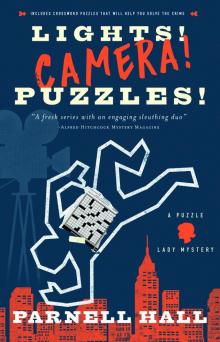 Lights! Camera! Puzzles!
Lights! Camera! Puzzles!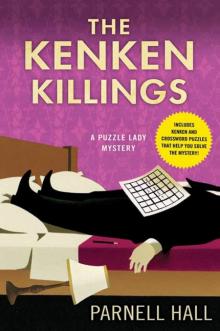 The KenKen Killings
The KenKen Killings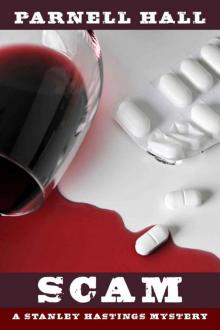 12-Scam
12-Scam The Puzzle Lady vs. the Sudoku Lady
The Puzzle Lady vs. the Sudoku Lady 2 Murder
2 Murder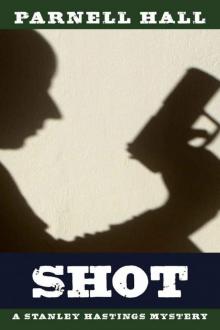 7 Shot
7 Shot You Have the Right to Remain Puzzled
You Have the Right to Remain Puzzled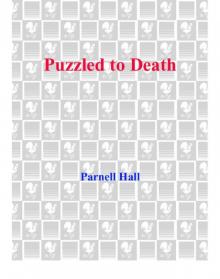 Puzzled to Death
Puzzled to Death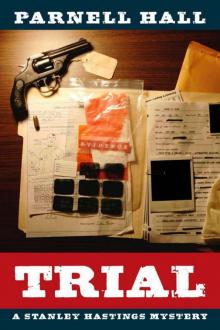 11-Trial
11-Trial The Witness Cat (Steve Winslow Mystery)
The Witness Cat (Steve Winslow Mystery) With This Puzzle, I Thee Kill
With This Puzzle, I Thee Kill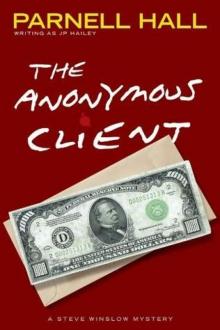 The Anonymous Client sw-2
The Anonymous Client sw-2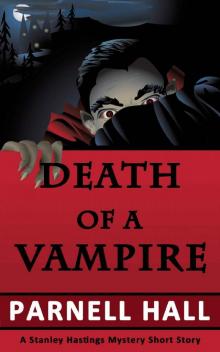 Death of a Vampire (Stanley Hastings Mystery, A Short Story)
Death of a Vampire (Stanley Hastings Mystery, A Short Story)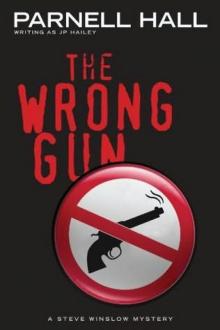 The Wrong Gun sw-5
The Wrong Gun sw-5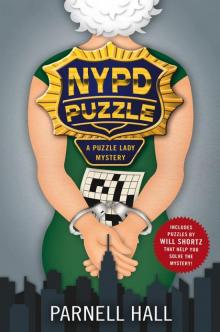 NYPD Puzzle
NYPD Puzzle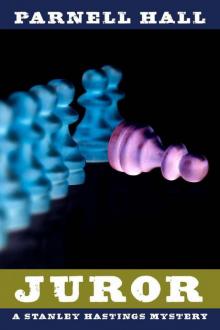 6 Juror
6 Juror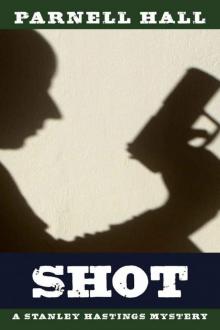 07-Shot
07-Shot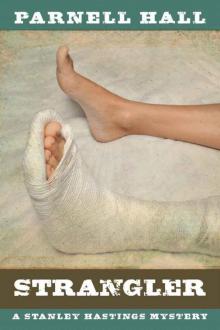 04-Strangler
04-Strangler 02-Murder
02-Murder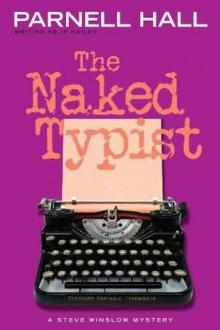 SW04 - The Naked Typist
SW04 - The Naked Typist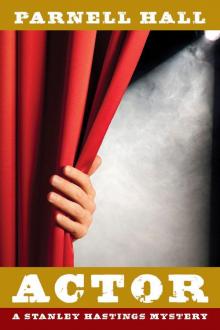 Actor
Actor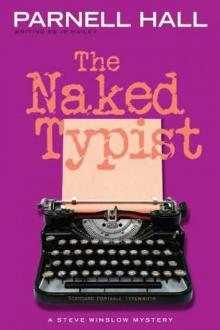 The Naked Typist sw-4
The Naked Typist sw-4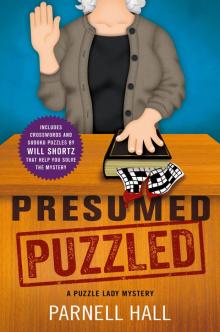 Presumed Puzzled
Presumed Puzzled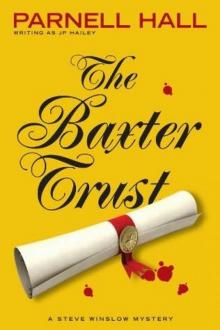 SW01 - The Baxter Trust
SW01 - The Baxter Trust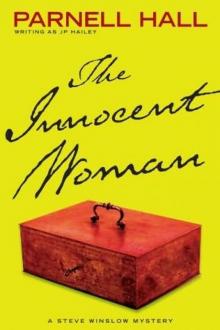 SW06 - The Innocent Woman
SW06 - The Innocent Woman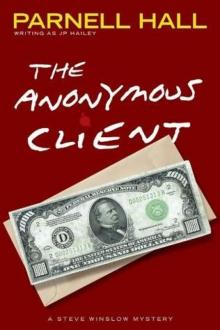 SW02 - The Anonymous Client
SW02 - The Anonymous Client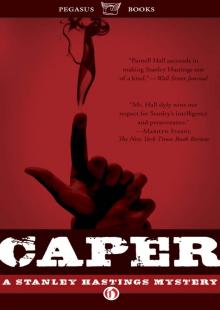 Caper
Caper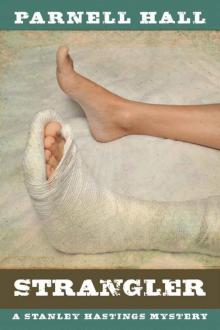 4 Strangler
4 Strangler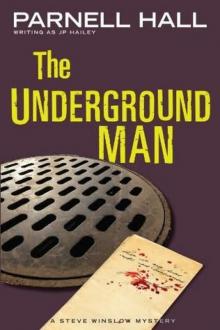 The Underground Man sw-3
The Underground Man sw-3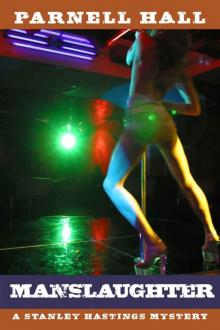 Manslaughter (Stanley Hastings Mystery, #15)
Manslaughter (Stanley Hastings Mystery, #15)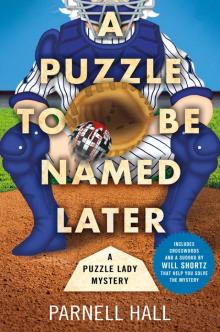 A Puzzle to Be Named Later--A Puzzle Lady Mystery
A Puzzle to Be Named Later--A Puzzle Lady Mystery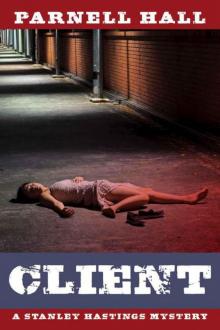 05-Client
05-Client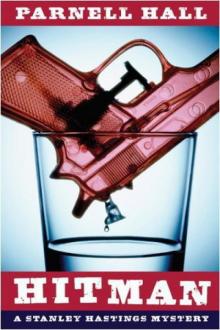 16 Hitman
16 Hitman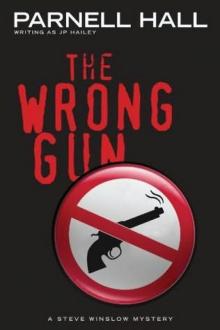 SW05 - The Wrong Gun
SW05 - The Wrong Gun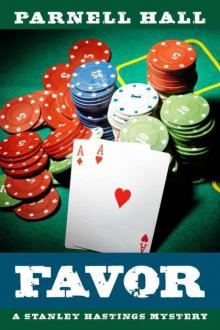 3 Favor
3 Favor Last Puzzle & Testament
Last Puzzle & Testament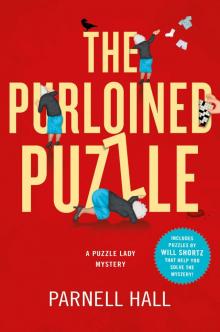 The Purloined Puzzle
The Purloined Puzzle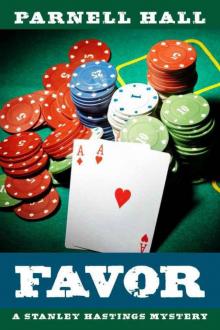 03-Favor
03-Favor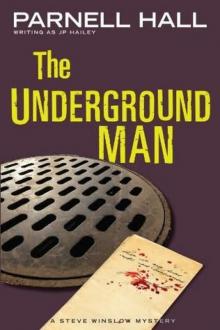 SW03 -The Underground Man
SW03 -The Underground Man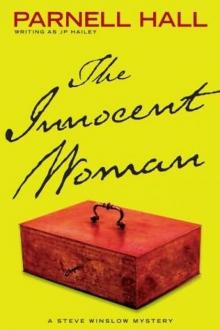 The Innocent Woman sw-6
The Innocent Woman sw-6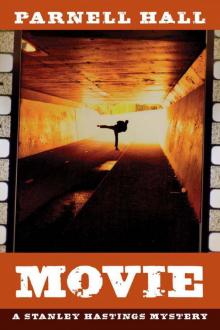 10 Movie
10 Movie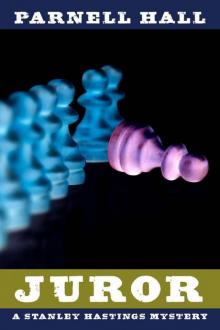 06-Juror
06-Juror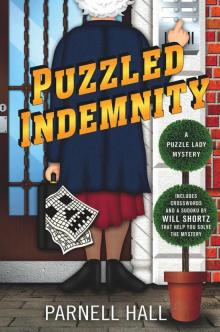 Puzzled Indemnity
Puzzled Indemnity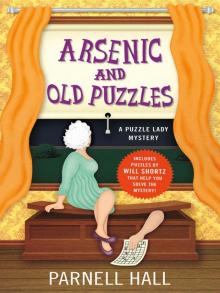 Arsenic and Old Puzzles
Arsenic and Old Puzzles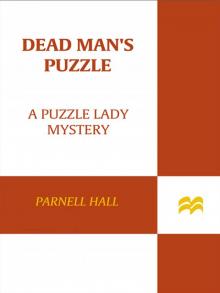 Dead Man's Puzzle
Dead Man's Puzzle Safari
Safari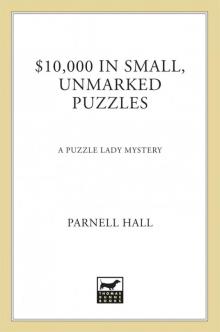 $10,000 in Small, Unmarked Puzzles
$10,000 in Small, Unmarked Puzzles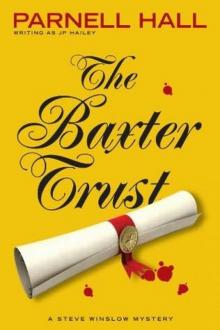 The Baxter Trust sw-1
The Baxter Trust sw-1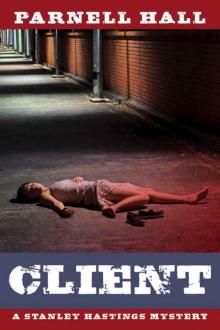 5 Client
5 Client Cozy (Stanley Hastings Mystery, #14)
Cozy (Stanley Hastings Mystery, #14)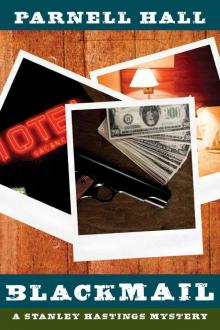 Blackmail
Blackmail A Puzzle in a Pear Tree
A Puzzle in a Pear Tree A Clue for the Puzzle Lady
A Clue for the Puzzle Lady Clicker Training (Stanley Hastings Mystery, A Short Story)
Clicker Training (Stanley Hastings Mystery, A Short Story)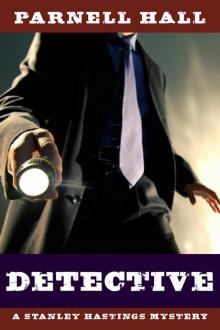 Detective (Stanley Hastings Mystery Book 1)
Detective (Stanley Hastings Mystery Book 1) 13 Suspense
13 Suspense